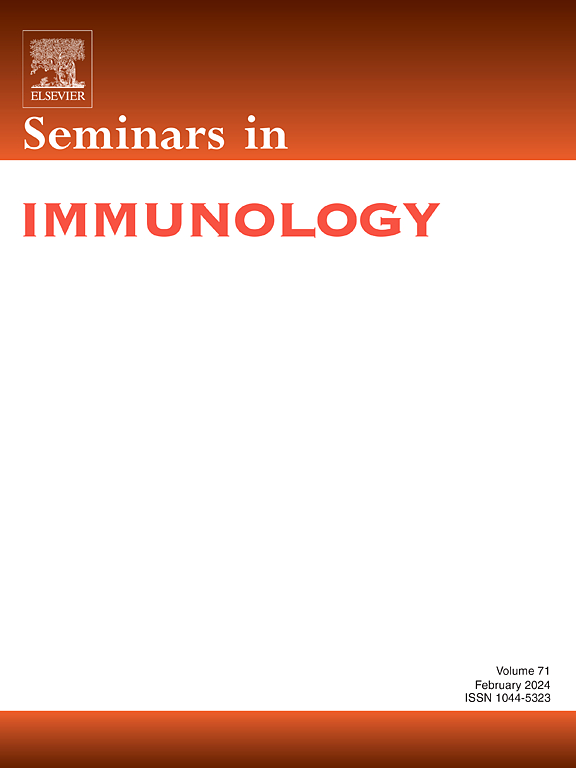Global aspects of celiac disease and food allergy
IF 7.4
2区 医学
Q1 IMMUNOLOGY
引用次数: 0
Abstract
Celiac disease and food-allergy are both food-related chronic immune disorders with a common pathogenic link being breakdown in the gut tolerance to otherwise innocuous food antigens. Notwithstanding the similarities, there are significant differences in the pathogenesis of both disorders, which translates to variations in clinical presentations, diagnostic tools and disease epidemiology. The past few decades have witnessed a global increase in prevalence and incidence of both disorders, driven both by true rise due to epidemiological factors and unmasking of previously undiagnosed disease due to better diagnostics and health seeking behavior, related to economic factors. Worldwide as more cases are diagnosed, disparities in healthcare and resources available for disease management are increasingly becoming more relevant but are infrequently discussed. In this review we will discuss the global epidemiology of celiac disease and food allergy, their epidemiological risk factors and future directions for their improved diagnosis and management.
乳糜泻和食物过敏的全球视角
乳糜泻和食物过敏都是与食物有关的慢性免疫疾病,它们的共同致病环节是肠道对无害食物抗原的耐受性被破坏。尽管有相似之处,但两种疾病的发病机制存在显著差异,这转化为临床表现、诊断工具和疾病流行病学的差异。过去几十年,这两种疾病的流行率和发病率在全球范围内都有所上升,这一方面是由于流行病学因素造成的真正上升,另一方面是由于与经济因素有关的更好的诊断和求医行为使以前未确诊的疾病得以揭露。在世界范围内,随着越来越多的病例被诊断出来,医疗保健和疾病管理可用资源方面的差距正变得越来越重要,但很少被讨论。在本文中,我们将讨论全球乳糜泻和食物过敏的流行病学,他们的流行病学危险因素和未来的方向,以提高其诊断和管理。
本文章由计算机程序翻译,如有差异,请以英文原文为准。
求助全文
约1分钟内获得全文
求助全文
来源期刊

Seminars in Immunology
医学-免疫学
CiteScore
11.40
自引率
1.30%
发文量
50
审稿时长
89 days
期刊介绍:
Seminars in Immunology is a specialized review journal that serves as a valuable resource for scientists in the field of immunology. The journal's approach is thematic, with each issue dedicated to a specific topic of significant interest to immunologists. It covers a wide range of research areas, from the molecular and cellular foundations of the immune response to the potential for its manipulation, highlighting recent advancements in these areas.
Each thematic issue is curated by a guest editor, who is recognized as an expert in the field internationally. The content of each issue typically includes six to eight authoritative invited reviews, which delve into various aspects of the chosen topic. The goal of these reviews is to provide a comprehensive, coherent, and engaging overview of the subject matter, ensuring that the information is presented in a timely manner to maintain its relevance.
The journal's commitment to quality and timeliness is further supported by its inclusion in the Scopus database, which is a leading abstract and citation database of peer-reviewed literature. Being indexed in Scopus helps to ensure that the journal's content is accessible to a broad audience of researchers and professionals in immunology and related fields.
 求助内容:
求助内容: 应助结果提醒方式:
应助结果提醒方式:


